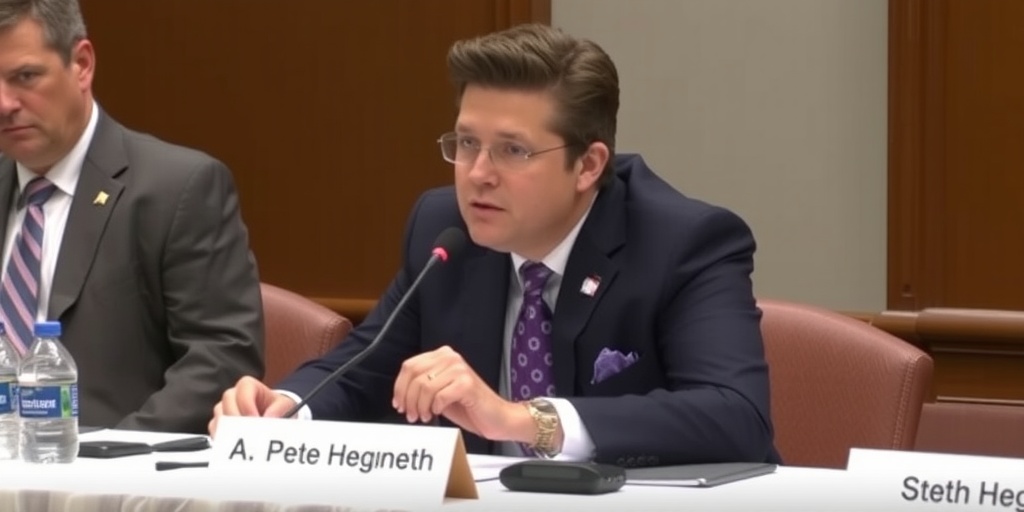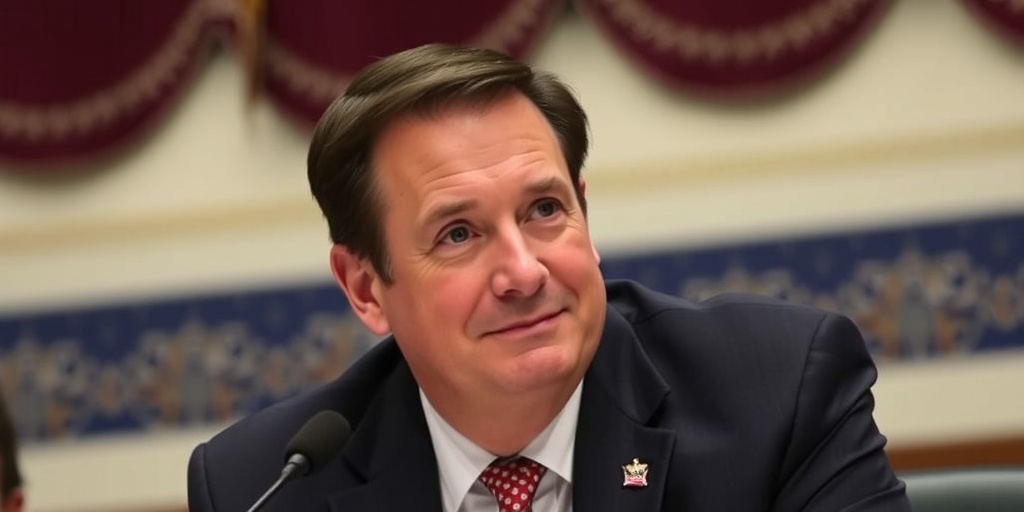Now Reading: Russell Vought Set to Enhance Power of White House Budget Office
-
01
Russell Vought Set to Enhance Power of White House Budget Office
Russell Vought Set to Enhance Power of White House Budget Office

Russell T. Vought: A Controversial Figure Set to Lead the Budget Office Again
In a significant political development, Russell T. Vought is poised to return as the head of the Office of Management and Budget (OMB) in the upcoming Trump administration. His prior tenure during the first Trump administration was marked by controversial actions, including pushing federal employees to work without pay during government shutdowns and freezing military aid to Ukraine. Vought’s staunch opposition to what he deemed “wasteful spending”—particularly in terms of foreign aid and external organizing—has shaped his fiscal policies and philosophy.
As Vought gears up for another leadership role, he has articulated a vision for the OMB that aims for a substantial reduction in the size and scope of the federal government. He seeks not just to manage the budget but to fundamentally reshape the administrative structure, advocating for measures that would allow the executive branch to reclaim funds allocated by Congress. This proposed strategy is rooted in his belief in a powerful centralized presidency, a view he frames within the context of the so-called unitary executive theory.
Vought’s return to the OMB is expected to elevate him beyond the role of a mere budgetary analyst. He is likely to become instrumental in driving forward Trump’s agenda to minimize federal government operations. In a recent interview, he described the OMB as the “nerve center” of the federal government and emphasized its capability to influence agency spending and regulation. This perspective underscores his desire to transform the agency into a tool for dismantling what he views as bureaucratic inefficiency.
Established in 1921 as the Bureau of the Budget, the OMB has evolved considerably, now overseeing not only the preparation of the presidential budget but also the assessment of federal regulations. This regulatory oversight allows the office to play a crucial role in determining how federal laws are implemented at the agency level, significantly affecting federal spending and policy.
John Koskinen, a former deputy director of the OMB, highlighted the often-overlooked power of the agency, stating, “It’s much more powerful than people realize.” This sentiment reflects the belief that the OMB’s influence extends well beyond budgetary calculations into the realm of regulatory control and governmental operations.
Vought’s nomination is anticipated to garner substantial support from Senate Republicans; however, Democrats are expected to rigorously question him about his previous actions in office and his latest policy views. The scrutiny comes at a time when U.S. economic and military assistance to Ukraine remains a contentious issue, particularly in light of Vought’s involvement in halting aid during a crucial phase of geopolitical tension.
During his previous tenure, Vought was implicated in the freeze of aid to Ukraine, a situation that sparked national controversy and was central to the impeachment proceedings against Trump. Critics of the administration accused Trump of leveraging military assistance to coerce Ukraine into launching an investigation into Joseph R. Biden Jr., a political rival. This context sets a challenging backdrop for Vought as he seeks to reestablish his credentials.
Moreover, should Vought return to the OMB under Trump’s second term, he is likely to collaborate closely with the newly formed Department of Government Efficiency, an initiative supported by entrepreneurial figures like Elon Musk and political advisor Vivek Ramaswamy. This partnership could further amplify Vought’s capacity to influence governmental policies and employment practices.
One significant area of Vought’s focus is the potential implementation of the Impoundment Control Act of 1974, which would grant the president the ability to unilaterally redirect budgeted funds that he deems misallocated. In line with this, Vought is a proponent of reinstating Schedule F, a policy that would increase the administration’s power to appoint and dismiss career civil servants, effectively reshaping the federal workforce to eliminate what he refers to as a "weaponized bureaucracy."
Vought’s rhetoric regarding federal employees has also drawn attention. His statements suggesting that career bureaucrats are harmful to government functions reveal a combative stance toward civil service. He has been quoted describing these employees as “villains,” indicating a desire to instill a transformative shock within the federal system.
His budget proposals, notably his 2022 blueprint aiming to reduce the national debt by nearly $9 trillion over a decade, emphasize drastic cuts to various sectors, including military and social services. While his plans do not explicitly call for cuts to Social Security or Medicare benefits, they propose significant reductions in programs like Medicaid and changes to veteran disability payments.
Vought’s approach represents a stark contrast to the equitable initiatives valued by the Biden administration. He has criticized the current administration’s emphasis on equity in budgeting, pointing to a perceived liberal agenda that he believes undermines the interests of the average American. He argues forcefully that reversing the influence of “woke” policies in government is paramount for the nation’s future.
As Vought prepares for Senate confirmation hearings, the examination of his track record and philosophy will undoubtedly shape the discussion surrounding the future of federal management and the budgetary priorities of the Trump administration. His confirmation would not only signal a return to past policies but an expansion of a radically different vision for American governance.
Stay Informed With the Latest & Most Important News
Previous Post
Next Post
-
 01New technology breakthrough has everyone talking right now
01New technology breakthrough has everyone talking right now -
 02Unbelievable life hack everyone needs to try today
02Unbelievable life hack everyone needs to try today -
 03Fascinating discovery found buried deep beneath the ocean
03Fascinating discovery found buried deep beneath the ocean -
 04Man invents genius device that solves everyday problems
04Man invents genius device that solves everyday problems -
 05Shocking discovery that changes what we know forever
05Shocking discovery that changes what we know forever -
 06Internet goes wild over celebrity’s unexpected fashion choice
06Internet goes wild over celebrity’s unexpected fashion choice -
 07Rare animal sighting stuns scientists and wildlife lovers
07Rare animal sighting stuns scientists and wildlife lovers





















